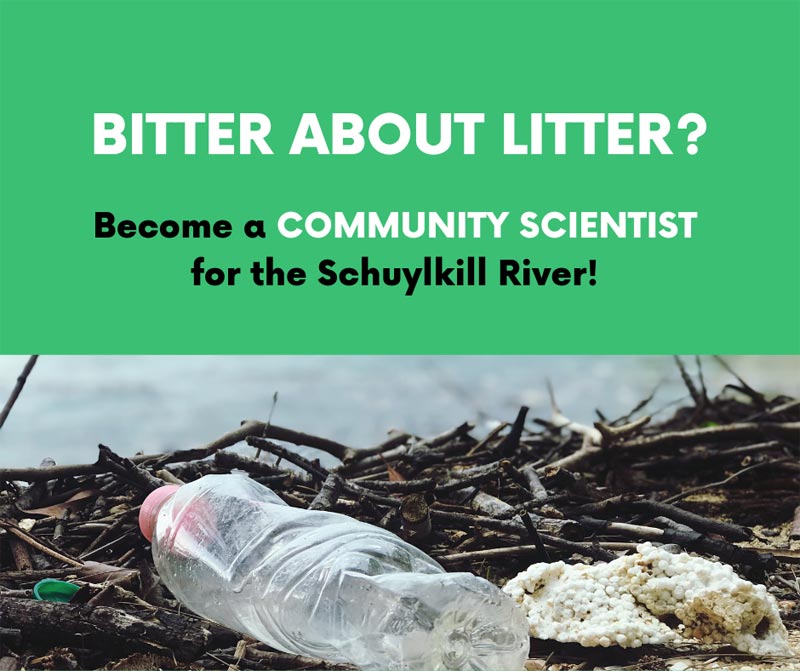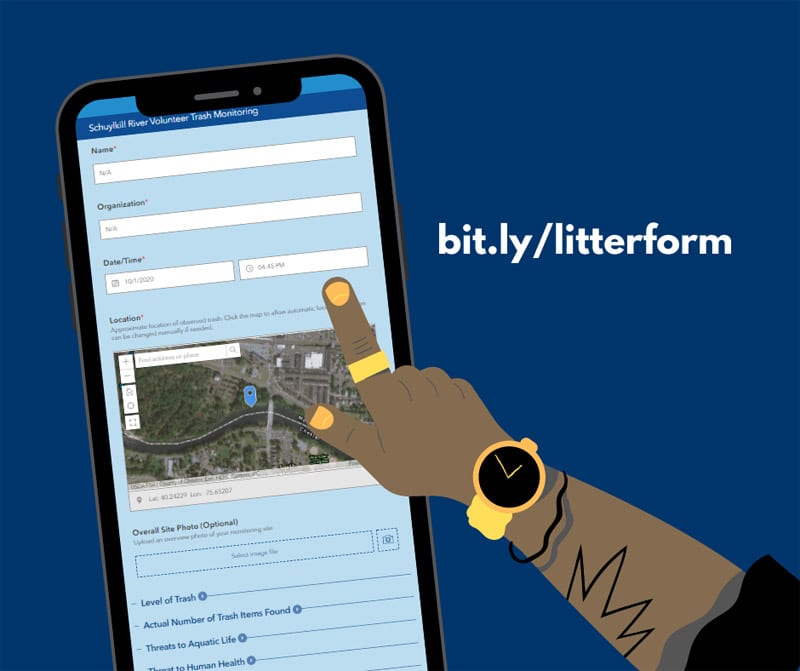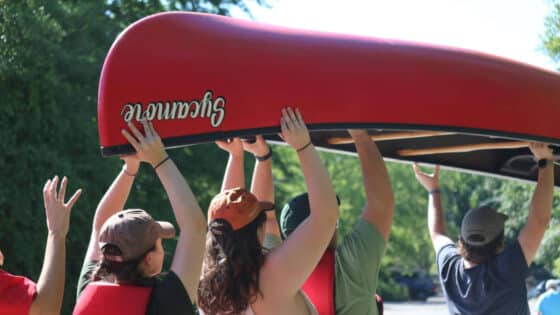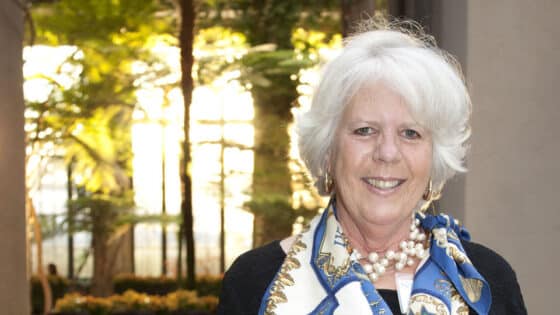The nonprofit Schuylkill River Greenways, in partnership with Berks Nature, Bartram’s Garden, The Schuylkill Center for Environmental Education, Stroud Water Research Center, and Princeton Hydro, is kicking off a Water Quality Monitoring Project for the Schuylkill River on World Habitat Day, Monday, October 5, 2020. This project, focused on the main stem of the river from Berks Nature in Reading to Bartram’s Garden in southwest Philadelphia, aims to document the current ecological status and health of the river and seeks to engage and educate a diverse set of river users and residents.
“An important aspect of our mission is to connect communities to the Schuylkill River through recreational and educational activities,” said Tim Fenchel, deputy director of Schuylkill River Greenways. “To fully achieve the river’s potential, we must help the public understand the current health status and what they can do to continue to improve its quality for this generation and generations to come.”
“Community Scientists” to Conduct 5-minute Visual Monitoring Assessments
In order to monitor the presence and/or distribution of litter along the Schuylkill River, the team is launching a campaign to recruit “Community Scientists” to conduct 5-minute Visual Monitoring Assessments. Using their mobile device, these volunteers can simply record the trash accumulation or dumping points along a 100-foot section of the Schuylkill River via a user-friendly form accessed via a cell phone: bit.ly/litterform.
“Trash is important to address when talking about the health of a waterway because it’s often the most visually obvious form of pollution. Bacterial and chemical pollution are generally less directly observable, but when we see trash, it instantly informs our impression of a body of water,” said Chloe Wang, river programs coordinator at Bartram’s Garden. “And, it can point to larger problems. For example, near Bartram’s Garden, a lot of trash washes into the river from combined sewer overflows, which also introduces harmful bacteria into the water. It will be interesting to see how the presence of trash differs along various stretches of the Schuylkill.”
The Community Scientist visual assessments require no formal training and are meant to be a simple effort that any resident can complete. The assessment survey can be accessed and submitted via a smartphone or tablet by opening the link in the phone/tablet’s browser.
“This is an opportunity for anyone with an interest in the Schuylkill River to spend time on the river and provide valuable feedback on the conditions of the river,” said David Bressler, project facilitator at the Stroud Center. “Schuylkill River Greenways and its partners in this project are looking for motivated and dependable individuals to help them learn about the Schuylkill River and move in positive directions toward making the river more accessible to the community. Support from volunteers is very important and is greatly appreciated.”
Connecting People Back to the River

The goal is to document critical areas of trash accumulation or dumping points in order to guide management efforts to better deal with this pollution. In addition to the multiple choice questions to rank trash levels and quantities, this platform asks volunteers to submit a photo of the area and collects the GPS location. By utilizing this user-friendly platform, the data collected under this effort will be summarized and visualized by the project team.
“This project is an important study that we can use to connect people back to the river and show that the Schuylkill River is a place to be enjoyed by the entire community surrounding it and beyond,” said Michael Griffith, education and watershed specialist at Berks Nature.
In 1985 the United Nations designated the first Monday of October every year as World Habitat Day. The idea is to reflect on the state of our towns and cities and the basic right of all to adequate shelter and to remind the world of its collective responsibility for the future of the human habitat. By understanding and improving water quality in the Schuylkill River, we are creating a place that enables community members to access public green and open spaces. This effort also supports UN Sustainable Development Goal 11, which aims for resilient, inclusive, safe, diverse cities by 2030.
Assessing the Health of the Schuylkill River
In addition to the Community Scientist visual assessments, the stakeholder team is conducting water quality sampling and monitoring over the next year at four locations along the main stem of the Schuylkill River. This scientific documentation of critical water quality parameters will be performed by the stakeholder group’s employees and long term volunteers, who are trained in data collection and scientific methods. They will collect data on bacterial concentrations in the river using a combination of 3-M Petrifilm kits and laboratory based analytical measures. In addition, in-situ temperature, oxygen, pH, and turbidity data will be collected utilizing Mayfly Data Loggers.
“Our research shows that residents care about the river, but are not confident whether it is clean or safe to use for recreational activity. So, we’ve designed a volunteer survey and scientific water quality assessment to document the ecological health of the Schuylkill River,” said Michael Hartshorne, Aquatic Resources Project Manager at Princeton Hydro. “By studying bacterial inputs and identifying hotspots for trash, we can communicate the status of the river, provide recommendations on areas of improvement, and ultimately, change the current public perception of the river.”
For the water quality monitoring, Princeton Hydro scientists will provide training to the partner nonprofit organizations’ staff and review the methods and protocols to assure the highest level of quality. This long-term data collection effort is slated to begin this month and continue for approximately one year. The results of this assessment will allow us to determine potential hotspots related to nutrient and bacteria inputs and to understand the overall ecological health of the Schuylkill River.
Overall, through this effort, the stakeholder team hopes to connect residents and communities with the Schuylkill River and to encourage engagement with this special resource.
ABOUT SCHUYLKILL RIVER GREENWAYS
The mission of the Schuylkill River Greenways National Heritage Area is to connect residents, visitors and communities to the Schuylkill River and the Schuylkill River Trail by serving as a catalyst for civic engagement and economic development in order to foster stewardship of the watershed and its heritage.
ABOUT BARTRAM’S GARDEN
Bartram’s Garden is a 45-acre National Historic Landmark, operated by the John Bartram Association in cooperation with Philadelphia Parks and Recreation. It is a destination and an outdoor classroom, living laboratory, and membership organization for ever-expanding audiences―over 95,000 each year and counting.
ABOUT STROUD WATER RESEARCH CENTER
Stroud Water Research Center seeks to advance knowledge and stewardship of freshwater systems through global research, education, and watershed restoration. Since 1967, Stroud Water Research Center has been leading the effort to produce innovative solutions for preserving and restoring fresh water. We believe in an independent voice — and in adventure, inspiration, perseverance, and integrity.
ABOUT BERKS NATURE
As a nonprofit conservation organization, Berks Nature has been serving the Berks County community since 1974. Land preservation, water protection, trail management, community gardens, education programs, State of the Environment, Eco-Camp and our valued partnerships are at the center of Berks Nature’s work every day.
ABOUT SCHUYLKILL CENTER FOR ENVIRONMENTAL EDUCATION
Founded in 1965, the Schuylkill Center is one of the first urban environmental education centers in the country, with 340 acres of fields, forests, ponds, and streams in northwest Philadelphia. They work through four core program areas: environmental education, environmental art, land stewardship, and wildlife rehabilitation.
ABOUT PRINCETON HYDRO
Princeton Hydro is committed to changing our ecosystems, quality of life, and communities for the better. Our firm was formed in 1998 with the specific mission of providing integrated ecological and engineering consulting services. Offering expertise in natural resource management, water resources engineering, geotechnical design & investigation, and regulatory compliance, our staff provides a full suite of environmental services throughout the Northeast for the public and private sectors.




